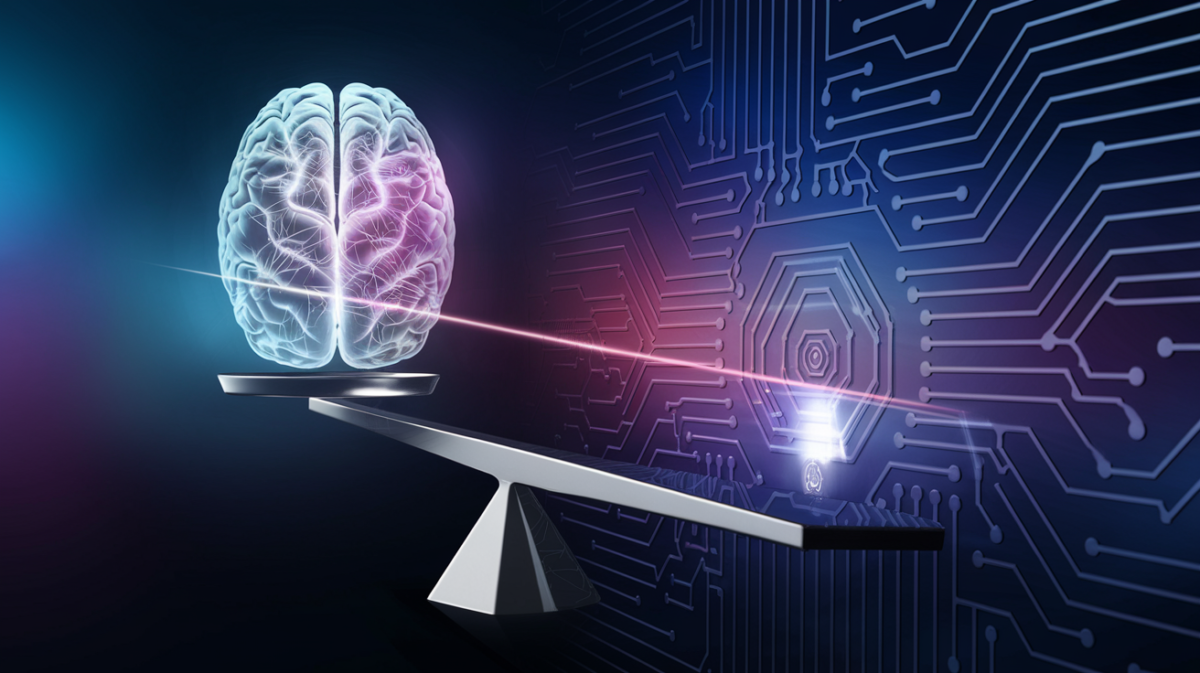The rise of artificial intelligence (AI) has sparked a heated debate: is it making us smarter or dumber? While AI tools promise efficiency and convenience, growing evidence suggests that overreliance on them may erode critical thinking and cognitive skills. This article explores the latest research, expert opinions, and public discourse on whether AI is undermining human intelligence.
The Cognitive Cost of Overusing AI
Recent studies highlight the potential downsides of leaning too heavily on AI. A study titled “Experimental Evidence on Negative Impact of Generative AI on Scientific Learning Outcomes” found that relying entirely on AI for writing tasks reduced accuracy by 25.1%. Similarly, AI-assisted reading led to a 12% decline in comprehension. However, the same study noted that AI summarization tools improved output quality, suggesting that the impact depends on how these tools are used.
Key findings from the research include:
- Complete reliance on AI for writing reduces accuracy.
- AI-assisted reading may weaken comprehension.
- Summarization tools can enhance productivity when used correctly.
Another study published in Societies warns of “knowledge gaps” caused by cognitive offloading—where users lose the ability to verify or challenge AI-generated outputs. This phenomenon raises concerns about long-term intellectual dependency.
Expert Insights: Balancing AI and Human Thinking
Timandra Harkness, a prominent expert interviewed by Economist Education, argues that while AI excels at processing data, it lacks critical engagement. “AI can’t think critically, but humans must,” she emphasizes. Her perspective underscores the importance of maintaining human oversight in decision-making processes.
Other experts echo this sentiment, cautioning against the temptation to let machines do the heavy lifting. The key, they say, is to use AI as a supplement rather than a replacement for human thought.
Historical Context: A Familiar Debate
The fear that technology might dull our minds isn’t new. In 2008, Nicholas Carr’s article “Is Google Making Us Stupid?” explored similar concerns about the internet’s effect on deep thinking. Carr suggested that constant online activity might shorten attention spans and reduce reflective thinking—a theory that resonates with today’s AI discussions.
Public Opinion: Divided Views
Online forums like Reddit and YouTube reveal a spectrum of opinions. Some users worry that AI dependency could erode problem-solving skills, while others believe it enhances intelligence when used wisely. Below is a comparison of the two perspectives:
| Concerns About AI | Benefits of AI |
|---|---|
| May reduce critical thinking skills | Speeds up research and data analysis |
| Creates dependency on machines | Enhances productivity in repetitive tasks |
| Risk of “knowledge gaps” | Improves accessibility to information |
Striking the Right Balance
The debate isn’t about rejecting AI but about using it responsibly. Here are some ways to integrate AI without compromising cognitive abilities:
- Use AI as a tool, not a crutch: Leverage it for tasks like summarization or data sorting, but engage critically with the results.
- Stay informed: Regularly update your knowledge to avoid over-relying on AI for answers.
- Encourage human-AI collaboration: Combine machine efficiency with human creativity and judgment.
Conclusion
AI is a double-edged sword. While it offers unparalleled convenience, unchecked reliance may weaken our intellectual muscles. The solution lies in mindful usage—harnessing AI’s strengths while preserving the irreplaceable value of human thought. As the technology evolves, so must our approach to integrating it into our lives.







